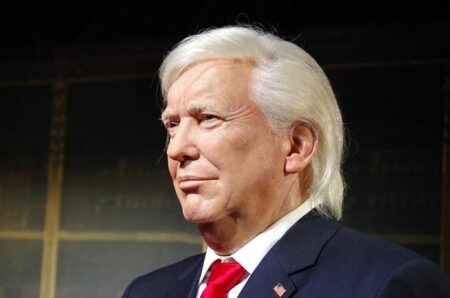Japan has moved to ease rising tensions with China amid an escalating dispute over Taiwan, signaling a cautious approach to regional stability. As Beijing intensifies its assertive stance on the island, Tokyo has emphasized dialogue and restraint, reflecting concerns over the potential impact on security and economic ties in East Asia. This development underscores the delicate balancing act faced by Japan as it navigates its complex relationship with both China and Taiwan in an increasingly volatile geopolitical landscape.
Japan Calls for Diplomatic Dialogue to De-escalate Taiwan Strait Tensions
Japan has urged both China and Taiwan to engage in constructive diplomatic efforts to ease the increasing tensions in the Taiwan Strait. Tokyo’s call highlights the importance of maintaining regional stability amid rising military activities and assertive political rhetoric from both sides. Japanese officials emphasized that open communication channels are vital to prevent misunderstandings that could spiral into conflict, affecting not only the immediate region but also global economic and security landscapes.
Key points raised by Japan’s diplomatic appeal include:
- Encouraging dialogue to reduce the risk of accidental military confrontations
- Supporting peaceful resolution in line with international laws
- Promoting cooperation among regional stakeholders to uphold freedom of navigation
| Country | Role in Taiwan Strait | Recent Actions |
|---|---|---|
| Japan | Diplomatic mediator | Calls for dialogue and de-escalation |
| China | Assertive military presence | Increased naval drills near Taiwan |
| Taiwan | Self-governance defender | Strengthened defensive measures |
Tokyo Emphasizes Regional Stability Amid Rising China-Taiwan Confrontations
Japan has taken a cautious approach amid escalating tensions in the Taiwan Strait, emphasizing the need for diplomatic dialogue and regional stability. Tokyo’s government officials have reiterated their commitment to peace, warning that unchecked conflicts could disrupt not only East Asia but the global economy. Japan’s stance underscores a delicate balancing act – maintaining strong economic ties with China while supporting democratic values and security arrangements allied with Taiwan and the United States.
Key measures Japan is promoting include:
- Enhanced multilateral talks involving ASEAN and other Pacific nations to defuse tensions.
- Increased maritime security cooperation to ensure freedom of navigation in the region.
- Economic safeguards to mitigate disruption from potential trade conflicts linked to the China-Taiwan dispute.
| Action | Purpose | Expected Outcome |
|---|---|---|
| Diplomatic outreach | Create communication channels | Reduce misunderstandings |
| Security drills | Enhance preparedness | Stabilize regional deterrence |
| Economic dialogue | Protect supply chains | Maintain growth and investment |
Experts Urge Strategic Engagement and Multilateral Cooperation to Prevent Conflict
Amid rising tensions in East Asia, leading analysts emphasize the urgent need for calibrated diplomatic initiatives to ease the current standoff. Observers highlight that reactive measures could exacerbate hostilities, urging stakeholders to prioritize dialogue that fosters mutual understanding over unilateral posturing. Japan’s approach, noted for its tempered rhetoric, reflects a growing consensus that maintaining open communication channels is essential to avoid inadvertent escalations.
Experts advocate for a multifaceted strategy involving:
- Engagement with regional partners to establish shared frameworks for crisis management.
- Leveraging multilateral institutions to facilitate transparent negotiations and confidence-building.
- Implementing preventative measures such as coordinated military deconfliction and economic dialogues.
| Key Aspect | Recommended Action |
|---|---|
| Diplomatic Channels | Activate emergency hotlines and back-channel communications |
| Regional Stability | Coordinate joint statements and peaceful security dialogues |
| Multilateral Forums | Engage ASEAN, UN, and other platforms for mediation roles |
Wrapping Up
As tensions continue to simmer over Taiwan, Japan’s recent diplomatic efforts signal a cautious approach aimed at de-escalation amid rising regional uncertainties. Both Tokyo and Beijing face the challenge of balancing national interests with the broader imperative of maintaining stability in East Asia. How this dispute unfolds will remain a critical watchpoint for international observers and policymakers in the months ahead.




